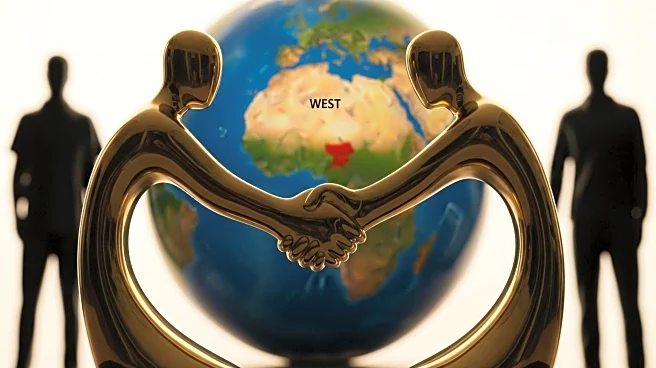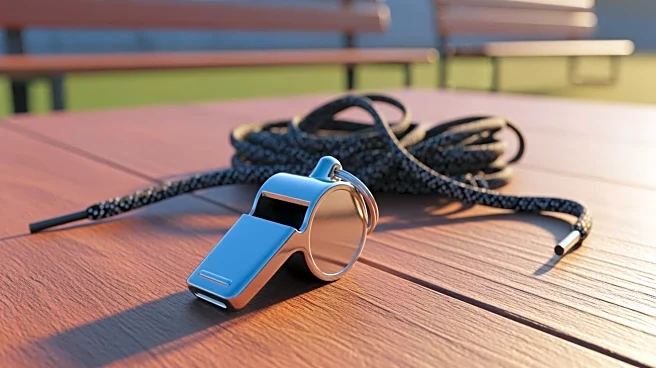What's Happening?
Ghana has accepted a group of 14 West African nationals deported from the United States, as announced by President John Mahama. This move aligns Ghana with other African nations like Eswatini, Rwanda, and South Sudan, which have also received deportees from the U.S. The deportees include Nigerian and Gambian nationals who intend to return to their home countries. President Trump, in his second term, has intensified efforts to deport immigrants deemed as criminals or those who have overstayed their visas. Concerns have been raised about the conditions faced by deportees in Africa, with legal experts questioning the legality of these deportations. Rights groups have noted that many African countries accepting deportees have poor human rights records.
Why It's Important?
The deportation of West African nationals from the U.S. to Ghana highlights ongoing tensions in U.S. immigration policy under President Trump. This development could strain diplomatic relations between the U.S. and African nations, especially those pressured to accept deportees. The situation underscores broader issues of human rights and legal challenges associated with deportation practices. African countries receiving deportees may face increased scrutiny over their human rights records, potentially affecting international aid and trade relations. The deportations also raise ethical questions about the treatment of migrants and the responsibilities of host countries.
What's Next?
Ghana's decision to accept deportees may prompt other West African nations to reconsider their stance on similar agreements with the U.S. The international community, including human rights organizations, may increase pressure on both the U.S. and African countries to ensure fair treatment of deportees. Legal challenges against the deportations could arise, potentially influencing future U.S. immigration policies. Additionally, the situation may lead to increased advocacy for migrant rights and reforms in deportation processes.










